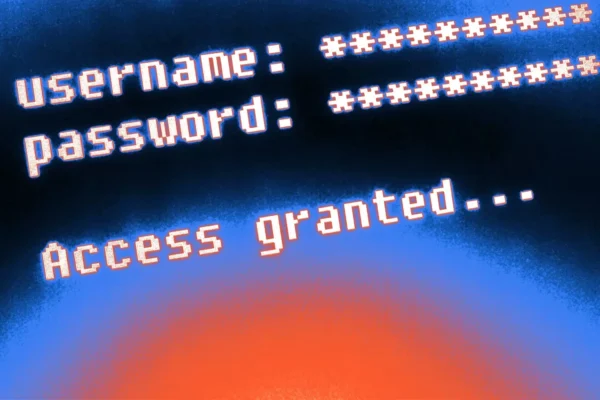
Event Ticket Scams: From Festivals to Concerts, What to Look for

If you love live entertainment, there’s a solid chance that you’ll buy tickets online. Tickets can now be sold through a variety of websites, including digital box offices, social media sites, and secondhand marketplaces. As a result, it’s easier than ever for ticket sellers to create event ticket scams that can leave you at the front gate of your event without a legitimate ticket for entry.
To protect yourself from ticket brokers peddling fake tickets, it’s important to arm yourself with knowledge. Here, we’ll review the most common ticket scams, as well as how to protect yourself from scams, and what to do if you find that you’ve been the victim of ticket fraud.
Common Types of Ticket Scams
When it comes to scamming customers out of their hard-earned money, criminals seem to have limitless creativity. Some of the more common event ticket scams are ones you might expect—like simply selling counterfeit tickets—but others are much more elaborate and difficult to recognize.
Fake Tickets
As long as there have been tickets for sale, there have been fake tickets on the market. While it may have been easier for criminals to perpetrate this type of scam before the advent of ticket scanners, that doesn’t mean those scanners are foolproof. In fact, as the ways to weed out inauthentic tickets has improved, so have scammers’ methods for making a faux product look real. And then, of course, these bad actors often rely on the enthusiasm of the buyers to compensate for any shortcomings in their counterfeiting skills. If you’ve just scored tickets for the hottest show on Broadway, are you really going to stop and scrutinize how they look?
Phishing Scams
A more complex scam may be even more difficult to recognize than a mere fake ticket. Some scammers have become so sophisticated that they will specifically target attendees of certain music festivals.
In this scenario, the scammers may create a legitimate looking website that mimics a login page for the music festival in question. The scammers then email ticket holders, asking them to login on the fake website to access their tickets, and capture that login information to modify the accounts of individuals who have already purchased a ticket. Usually scammers will change the ticket holder’s address and contact information so that wristbands will be shipped to the scammer rather than the actual ticket holder.
Invented Events
A scammer doesn’t have to latch on to a real event to run a con—they can simply invent one. After all, with no event to put on, 100% of the ticket sales are profit. These scammers might try to sell tickets to fake events via social media sites like Facebook and Instagram, or may create an entirely new website to sell their “tickets” online.
Wrong Seats
If you buy your tickets on a third-party website, the seller may often misrepresent the location of the seats in question. While the tickets may be advertised as being in front row center, they might actually be in an undesirable location—behind a column or in the nosebleed section. Because these tickets are much cheaper than those closer to the stage, the ticket seller can make a decent profit simply by not providing all the details of the tickets.
Illegal Tickets for Resale
Sometimes event ticket scams come down to simple identity theft. Thieves may purchase tickets using stolen credit card information, then sell those tickets online. However, when the person whose credit card information was stolen reports the loss and cancels the purchase, the ticket buyer may find that their tickets are invalid on the day of the event.
How to Protect Yourself from Event Ticket Scams
The situation surrounding online ticket sales has become so dire, that in recent years the Federal Trade Commission has tried to step in to help protect consumers. The FTC passed the Better Online Ticket Sales (BOTS) Act in 2016 in an effort to improve security around event ticket sales and even held a workshop on how to improve consumer protections in the online event ticketing space.
While the efforts of the government are encouraging, it will still often come down to you, the individual, to recognize a scam before you get duped. Here are a few actions you can take to help protect yourself and your wallet from ticket scams:
- Be protective of your credit card information. Naturally, you should always be wary about giving out your credit card information. If a seller accepts a payment service, such as PayPal, then you’re protected by an extra layer of security. If they don’t, that might be a warning in and of itself.
- Be wary of underpriced tickets. If tickets are priced markedly below what you’re used to paying to attend such fare, you may have stumbled into a scam. Remember, scammers rely on people’s inherent desire to get a bargain. It’s certainly possible that you lucked into the most reasonably priced music festival in the country – but then again, maybe you didn’t.
- Always double check vendor information. If you’re buying tickets from a secondary market—or really anywhere online—be sure you know your source is legitimate. Do your research. Check the web address and seller contact information. Better to experience the disappointment of missing the show or the game than have the even greater disappointment of fake tickets!
What To Do If You Become a Victim
Despite your best efforts, you may still find that the tickets you purchased for your next favorite show turn out to be illegitimate. If that’s the case, there’s no need to be ashamed. Instead, take action. There are a few steps you can take to report and recover from ticket fraud:
- Contact customer service. If you purchased tickets from an authorized reseller, reach out to their customer service team for assistance.
- Report the incident to law enforcement. File a report with your local law enforcement, especially if you met the scammer in person.
- File a complaint with the Better Business Bureau (BB). The BBB has an online scam tracker where you can report the ticketing company and help protect other consumers.
- Tell your credit card company. If you used your credit card to purchase the ticket, report the problem to the credit card company immediately. You may be able to dispute the charge and recover your cash.
Buyer Beware, and Enjoy the Show
If you’ve been the victim of an event ticket scam or are worried about buying tickets online, you’re not alone. A recent study found that 12% of people buying concert tickets have been scammed, and two-thirds of event-goers are worried about purchasing tickets online. But by keeping up to date on the most common types of event ticket scams and taking steps to protect yourself before purchasing tickets online, you can still enjoy the thrill of live entertainment.
Become an Amplify Member
Every Amplify account holder enjoys fee-free banking. That means no overdraft, maintenance, or other banking fees cutting into your pocket.




